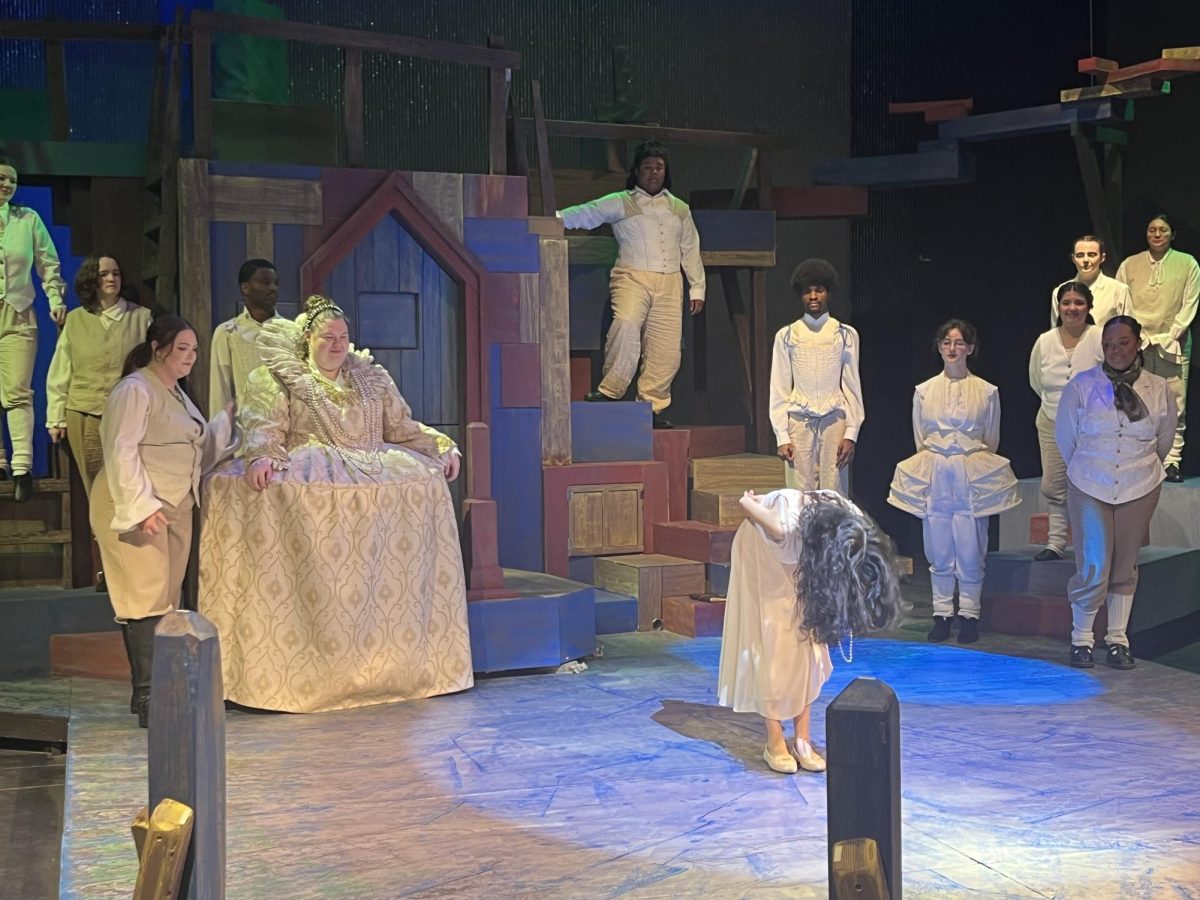River Stage and the Theatre and Dance Arts Department opened the doors to the Black Box Theatre throughout the month of March for their production of “Orlando.”
The play is an adaptation of Virginia Woolf’s book “Orlando” by two-time Pulitzer-winning playwright Sarah Ruhl.
The show follows the life of the main character, Orlando, as they traverse a life that spans five centuries and crosses class, continent and gender identity.
Co-Director Ryan Perez-Adame says the play challenges gender norms and asks hard questions about finding a sense of self.
“I think ‘Orlando’ is a very beautiful look at what it is just to be a human,” Perez-Adame said.
The plot of the play allows for many themes to coincide, allowing for every person to take something else from the play.
“For me this is a very kind of queerfocus play,” Perez-Adame said. “Not just because of Orlando’s transformation, but just the idea of, kind of being in between worlds and across worlds, across times, and keeping the sense of self.”
Co-Director Amber Shoneff found an interest in Orlando’s experience once they became a woman.
“I’m really interested in kind of how Orlando experiences the world in a different way once they become a woman. Like how she says the privileges and penalties of her position,” Shoneff said.
Sergio Lewall, a 17-year-old undeclared major, felt entertained by some of the humorous elements of the play.
“I honestly loved it,” Lewall said. “It was just super funny. It was a really unique experience.”
Throughout the play the production utilizes the ensemble to create noise and movement to demonstrate the emotion of the main character Orlando. Allowing the cast “creative freedom” when doing this was a point of emphasis for both directors.
“It was very collaborative in the whole process,” Shoneff said. “One of the things we work our students on is coming in, knowing your lines, showing up and offering an idea.”
For all of their productions, River Stage employs a standard ticket price of ‘pay what you can’. Perez Adame said the goal of this is to allow all to get out and see local theater.
“Like all artistic endeavors, it doesn’t survive if it’s not alive, and that means we have to welcome people into the theater who might not otherwise be in the theater,” Perez-Adame said.

